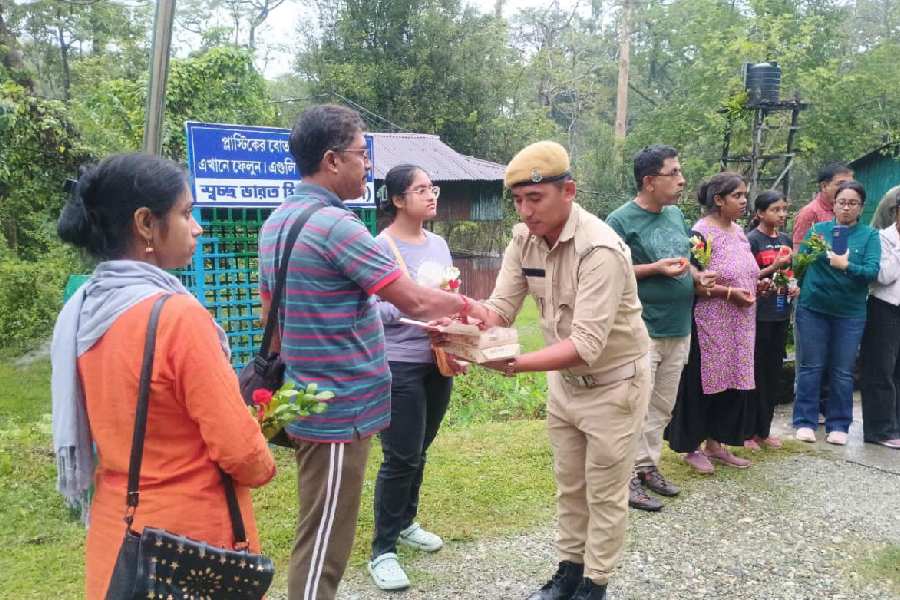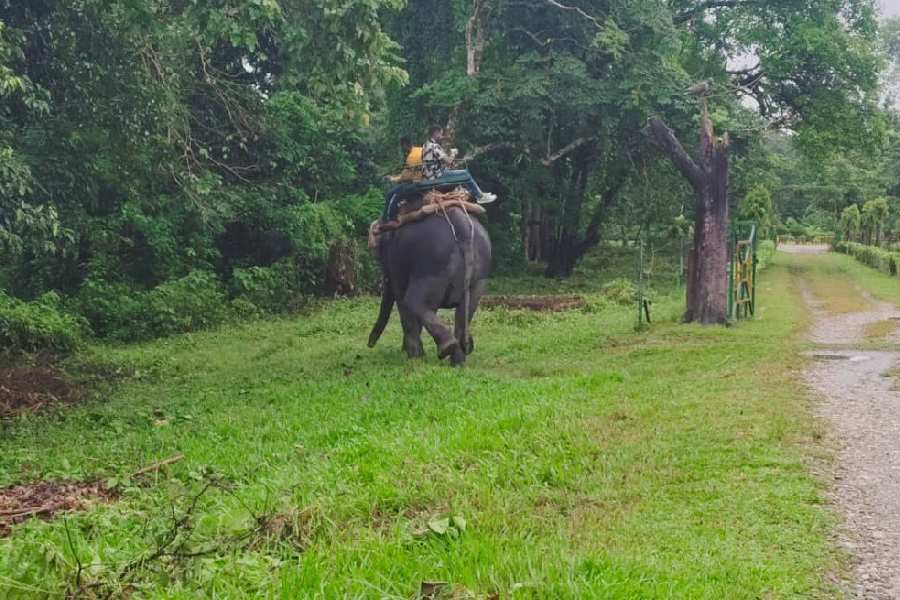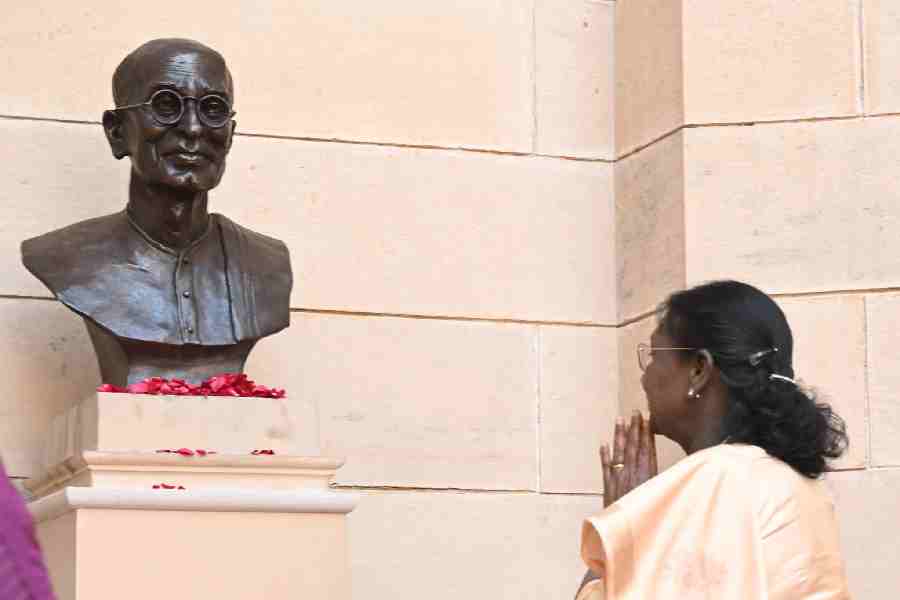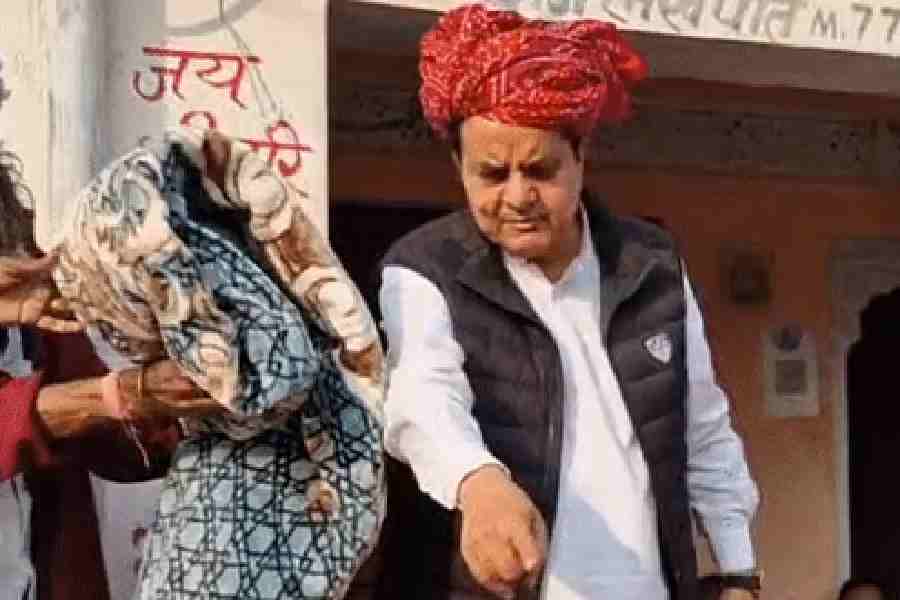Authorities of the Jaldapara National Park, Bengal’s largest one-horned rhino habitat, issued a clear directive to visitors that they should abstain from disposing of any waste inside the forest area.
The gates of the park reopened for visitors on Tuesday, along with the other reserve forests of north Bengal, after a gap of three months.
Like every year, the national parks, wildlife sanctuaries and the Buxa Tiger Reserve in this region of the state had closed down on June 15 for the monsoon months.
“As tourists assembled at the entrance of Jaldapara for car and elephant safari, our staff present there welcomed them and said they should not throw any waste inside the forest,” said Parveen Kaswan, the divisional forest officer of Jaldapara wildlife division.
“We have placed bamboo dustbins at different locations of the forest. All the vehicles used for the car safari have similar dustbins. The idea is to prevent pollution in the forest area and ensure a scientific disposal of garbage,” he added.

Foresters welcome tourists at the entrance to the Jaldapara National Park in Alipurduar on Tuesday. The park reopened for visitors after three months
On the first day, around 90 tourists visited Jaldapara. Most of them availed the car safari and a few took the elephant safari, one of the key attractions of the park that is known for its rich biodiversity.
As the park reopened, foresters said the online booking facility for elephant safari has been reintroduced at the park after a gap of around 10 months.
Since December last year, the state forest department withdrawn the online booking facility for elephant and car safaris because of technical reasons.
In Jaldapara, seven pet elephants are engaged for safari.
Four persons can mount on each elephant and move into the core area of the park. The individual cost of the safari, which lasts for 90 minutes, is ₹1,000. There are three elephant safaris per day.
On the other hand, around 800 visitors can avail the car safari in the park in a day. The cost is ₹ 1,750 per car, inclusive of a guide, with up to six tourists in the car.
“Earlier, tickets were available only in offline mode, that is, people had to reach the park counter to buy tickets. This time, online booking facility has been introduced for elephant safari,” said a forester.
However, car safari tickets are not available online for which a section of tourism stakeholders, including Sanjoy Das, joint secretary of the Dooars Tourism Development Forum, expressed concern.










